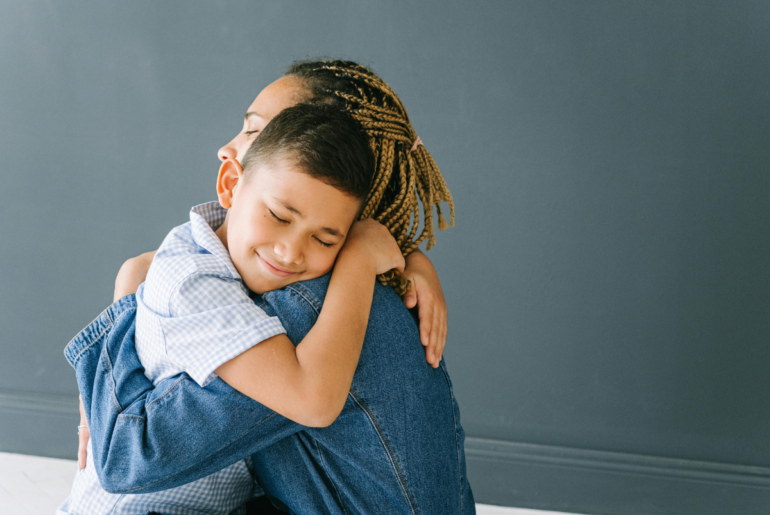The parent-child relationship evolves so much as your kids grow and change. As kids become increasingly more independent and start testing boundaries, parents learn to adapt their parenting and discipline style in response. With each new milestone and developmental level, the parent-child relationship slowly transforms over time.
It can be helpful to check in with your child regularly about how they’re experiencing your parenting and how they’re feeling about your relationship as they grow and change. Keeping communication open and honest about your relationship and your parenting style will also have the added bonus of putting your child more at ease coming to you about more difficult topics in the future.
Creating space for these honest conversations not only strengthens your relationship now but also sets the foundation for continued connection as your child grows. When your child knows that you truly care about their experience and are willing to listen and grow with them, it deepens mutual respect and emotional safety. These small check-ins can have a big impact—helping both you and your child feel more seen, supported, and understood.
Here are five questions you can ask your child to check in about your relationship and make your bond even stronger—
- What’s something I do that makes you feel loved? What’s something that would make you feel loved that you wish I did?
- When you’re having a hard moment, how do you feel about the way I handle it? What could I do to make you feel safer or more comforted in those moments?
- What’s an activity you wish we did together more? Are there any activities we do together that you wish we did less?
- How would you feel coming to me about a sensitive or embarrassing problem? Is there anything I could do that would make you feel more comfortable asking my advice?
- What’s something you love about our family? What’s something you think is unique about us?
These kinds of questions not only show your child that their feelings and opinions matter, but also help build emotional intelligence and trust. By giving your child space to reflect and express themselves, you’re modeling empathy and openness—skills they’ll carry into other relationships in their life. Even if their answers are hard to hear, responding with curiosity instead of defensiveness can lead to powerful growth for both of you.







